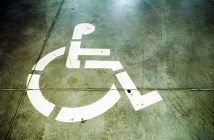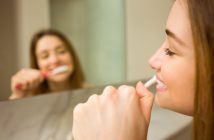Eating Right For The Health of Your Teeth
When it comes to nutrition for your pearly white smile, you may be surprised, but nutrition pays a very large part of it aside from just basic oral hygiene. But keep in mind, it’s a vicious cycle. You need to eat healthy in order to keep your teeth healthy, and without your teeth, you can’t chew up the foods that you need in order to do that. Therefore, in this guide we’re going to give you some nutrition strategies for oral health that are a must follow.
What Happens to Our Teeth?
If you don’t follow good practices in order to keep your teeth healthy, you can have a lot of problems with losing them, decaying teeth, bone loss, and even gingivitis or other gum diseases. However, your teeth are also a symbol of your overall health too says Schroeder Cosmetic and Family Dentistry. They can be telltale signs of things like heart disease, diabetes, sinus infections, arthritis, and so much more. Your dentist can actually sometimes be the one to tell you that you’re at risk for blood sugar disorders before your actual doctor can with all of their tests! Just like your toenails and fingernails, your teeth are a way to see what’s going on with your bodies.
Dental Macronutrients and Micronutrients are Essential
In order to have great teeth and gums, you need to have a very widely balanced diet to ensure that you get all of the nutrients you need to keep that smile bright. Protein, calcium, and phosphorous all help when it comes to tooth structure and helps to build healthy gums and strong teeth. Antioxidants, zinc, folates, iron, and vitamin A all help your teeth and your body’s immune system, and they also help your teeth as well, improving saliva quality and more.
Things like Vitamin C actually helps with your periodontal ligament, and they also improve your immune system too. Eating things like Omega-3 fatty acids, Vitamin D, and Vitamin B1, 6, and B12 all help when it comes to keeping your mouth happy. As a matter of fact, about 40% of all U.S. adults (and sometimes more than that with children) are deficient in Vitamin D. Without vitamin D, you lose bone density, as this helps to regulate your absorption of the calcium that is so healthy for your teeth.
That Well-Balanced Diet
One thing you can do is ensure that you intake the amount of foods that can be found on the USDA’s ChooseMyPlate website. The reason for this is because they provide the amount of calories that on average you should be intaking, but more importantly, it incorporates a wide variety of healthy foods and how much you should get for each meal, as well as helps to show you what food groups you need (such as eating more proteins, fruits, and fresh grains in the morning as a healthy start).
Conclusion
Remember, that no matter what, you still need to practice the essentials – brush twice daily, floss each time afterwards (most importantly at night), if you choose to use a mouthwash like Listerine, make sure you follow it up with a solid fluoride rinse as well, since this will kill a lot of plaque and bacteria, but isn’t all you need to strengthen your teeth. Also be sure to make your ritual appointments for your dentist for regular cleanings as well.




